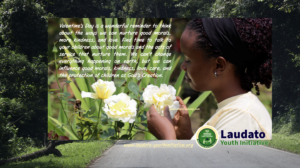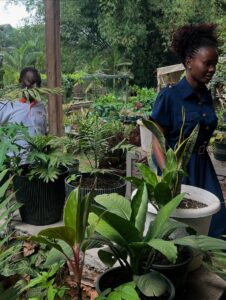Uganda, often referred to as the “Pearl of Africa,” is renowned for its stunning landscapes, rich cultural heritage, and remarkable biodiversity. Among its most valuable natural resources are the diverse forests that sprawl across the country, providing essential services and resources to local communities. These forests are not only home to a variety of flora and fauna but also play a crucial role in supporting the livelihoods of many Ugandans.

One of the most significant ways in which forests support local communities is through the provision of firewood. In Uganda, a large percentage of the population relies on biomass energy, with firewood being the primary source of fuel for cooking and heating. Many households, especially in rural areas, depend on nearby forests to gather firewood, which is often collected by women and children. This practice not only provides essential energy for daily living but also fosters a sense of community, as families often come together to collect firewood, share stories, and strengthen social bonds.
Moreover, forests in Uganda are vital sources of non-timber forest products (NTFPs), which contribute significantly to local economies. Communities often gather wild fruits, nuts, mushrooms, and medicinal plants from the forests. For example, the indigenous communities in the Albertine Rift region rely on forests to harvest honey, which is not only a source of nutrition but also a source of income through local markets. The sustainable harvesting of these resources encourages biodiversity conservation, as communities become more invested in preserving their forest ecosystems.
 In addition to providing fuel and food, forests offer a habitat for wildlife, which in turn supports ecotourism—a growing industry in Uganda. National parks like Bwindi Impenetrable National Park and Murchison Falls National Park attract tourists from around the globe who come to witness the unique biodiversity, including the famous mountain gorillas. The revenue generated from tourism creates job opportunities for local communities, ranging from tour guides to hospitality services, further enhancing their livelihoods.
In addition to providing fuel and food, forests offer a habitat for wildlife, which in turn supports ecotourism—a growing industry in Uganda. National parks like Bwindi Impenetrable National Park and Murchison Falls National Park attract tourists from around the globe who come to witness the unique biodiversity, including the famous mountain gorillas. The revenue generated from tourism creates job opportunities for local communities, ranging from tour guides to hospitality services, further enhancing their livelihoods.
However, Uganda’s forests face significant threats from deforestation, land conversion for agriculture, and illegal logging. As the population continues to grow, the demand for land and resources increases, often at the expense of these vital ecosystems. It is imperative to adopt sustainable forest management practices that balance the needs of local communities with the conservation of biodiversity. The threat to forests is a threat to the community and biodiversity.
It’s important to note therefore that Uganda’s diverse forests are a treasure trove of biodiversity that supports the livelihoods of countless communities across the country. By recognizing the value of these forests and promoting sustainable practices, we can ensure that future generations continue to benefit from the resources and services they provide. Protecting Uganda’s forests is not only an environmental necessity but also a commitment to the well-being and prosperity of its people. Together, we can preserve this natural heritage for years to come.














